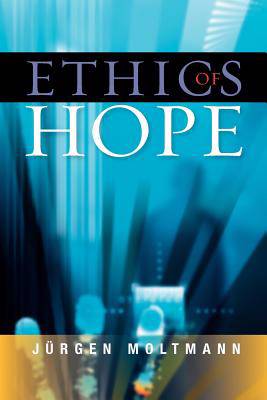
- Afhalen na 1 uur in een winkel met voorraad
- Gratis thuislevering in België vanaf € 30
- Ruim aanbod met 7 miljoen producten
- Afhalen na 1 uur in een winkel met voorraad
- Gratis thuislevering in België vanaf € 30
- Ruim aanbod met 7 miljoen producten
Zoeken
Omschrijving
For a time of peril, world-renowned theologian Jürgen Moltmann offers an ethical framework for the future. Moltmann has shown how hope in the future decisively reconfigures the present and shapes our understanding of central Christian convictions, from creation to New Creation. Now, in an era of unprecedented scientific advances alongside unparalleled global dangers, Moltmann has formulated his long-awaited Ethics of Hope. Building on the conviction, asserted in his Theology of Hope, that Christian existence and social matters are inextricably tied together in the political sphere, Moltmann unfolds his ethics in light of eschatology, clearly distinguishing it from prior and competing visions of Christian ethics. He then specifies his vision with an ethic of life (against the dominant ethic of death), an ethic of earth (against today's utilitarian ethic) and an ethic of justice (against today's social injustice and global conflicts). In the process, he applies this framework to concrete issues of medical ethics, ecological ethic, and just-war ethics.
Specificaties
Betrokkenen
- Auteur(s):
- Vertaler(s):
- Uitgeverij:
Inhoud
- Aantal bladzijden:
- 288
- Taal:
- Engels
Eigenschappen
- Productcode (EAN):
- 9780334044031
- Verschijningsdatum:
- 16/05/2012
- Uitvoering:
- Paperback
- Formaat:
- Trade paperback (VS)
- Afmetingen:
- 150 mm x 229 mm
- Gewicht:
- 421 g

Alleen bij Standaard Boekhandel
+ 111 punten op je klantenkaart van Standaard Boekhandel
Beoordelingen
We publiceren alleen reviews die voldoen aan de voorwaarden voor reviews. Bekijk onze voorwaarden voor reviews.











